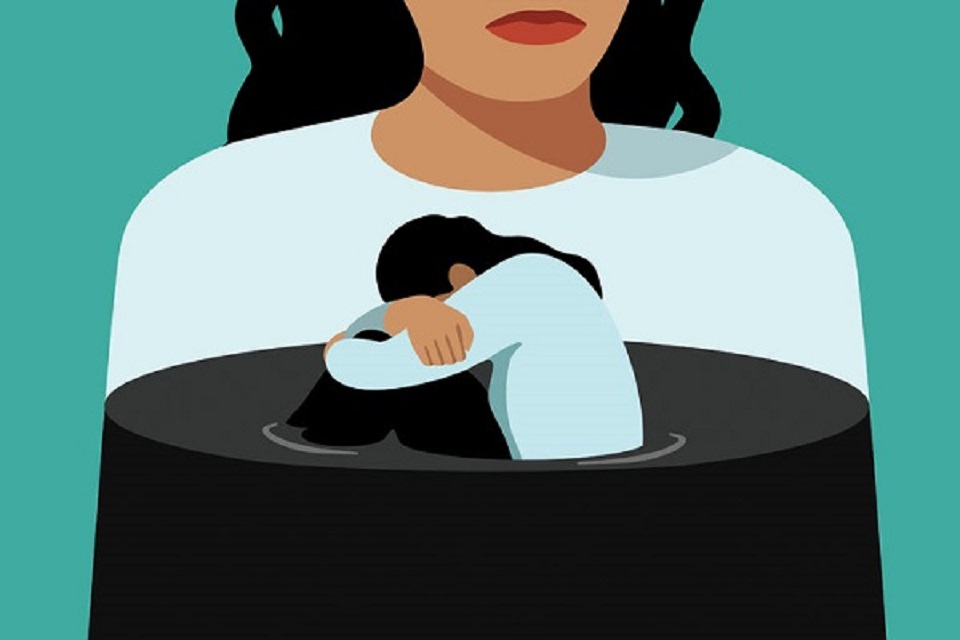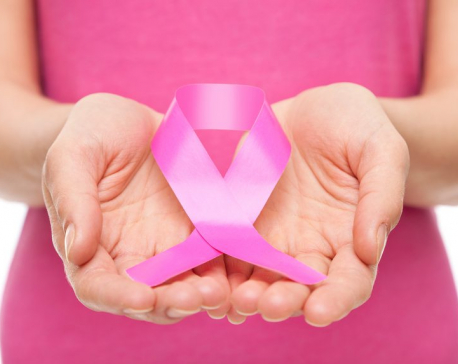
OR

More from Author
The lockdown has turned out to be a living hell for many. How is it that the people harmoniously living together for these many years under one roof suddenly have so much conflict with each other in a mere span of almost two months? What are they doing wrong?
Meera was in her mid-forties living a balanced personal and professional life. Living in a joint family, with a closely running successful work front, life was nothing short of perfect. Married in an arranged setting with the oldest son of the family there were expectations of her to fulfill the role of the good Buhari. However, educated in a prestigious convent boarding school, she decided to pursue a very successful career. With more support and help from her parental side of the family, she managed to juggle family and work. She had brought up her three children aged 11 to 18 and nurtured her career simultaneously.
The decision to build a career was of course met with conflict. The fact that all the other ladies of her household chose to be homemakers and were responsible for the smooth running of the household, had made her choice of being a career woman feel like an outcast. However, the vigor that Meera had regarding her life goals had managed to silence the growing squabble within the family.
Thus, this journey had begun some 25 years ago.
When COVID-19 struck the country and Nepal went into a complete lockdown on March 24, she did not know that this period of confinement would turn her life upside down. Now that she was at home and not away at work, the members of the household found a “weak” side of her. The expectation of a domestic goddess to somehow erupt out of her while she stayed locked up, under one roof with all other members of the family, the anticipation of a ramri Buhari, once again, by the in-laws, to the husband who was now pretty laid back considering the wife would be available to him at his beck and call, seemed to be taking a toll on her.
In the initial days, insolent comments started for negligible blunder in the kitchen, for adding little less salt in the curry or not having a jug of water on the dining table at mealtime and making her feel inefficient within the household. But by the end of day 52, the criticism had escalated to serious emotional bullying. The abuses thrown were also related to her trying to “act like the man of the house” by bringing in money instead of staying home and looking after the family.
The disapproval of the daughter-in-law of the house going out to work for so many years had suddenly taken center stage during the lockdown. Meera was treaded upon emotionally. She was pushed to live up to the “standards” of the household chores in which she was not very experienced as the other members of the house. Her financial confidence seemed to insult some members of the family. Therefore, the majority ganged up against her to a point where Meera started questioning herself for her choices she made from the beginning of her career and married life! Eventually, she had lost her confidence and the boldness that had been her backbone. In fact, she felt it would be selfish to take some time out during the day for self-care or to pursue hobbies like reading which she enjoyed.
Her children were also affected by the emotional abuse of their mother. The constant bickering created an environment of conflict and negativity for everyone living in the house. When she tried to talk to her husband about the rude behavior and abuse thrown at her, her husband was far less helpful and took the side of the rest of the members of the family. His obligations as the eldest son of the family, to respect and take care of his parents seemed to take priority over his responsibilities towards his wife.
Meera did not have anybody else in the house to talk to for emotional support. She did not wish to talk to anybody from her parental home or her friends as she did not want to wash her dirty linen in public. Also, the social pressure of having to be strong and in control of life stopped her from reaching out for help. She did not want to be perceived as a weakling who could not handle her family life.
When things started getting out of hand, with constant fights with the husband and the emotional health of the children also affected by it, she finally reached out to me for professional help.
Therapeutic intervention
During our first session, I noticed Meera’s paused sentences and her slow selection of words. She felt she needed help but at the same time she was still trying to hold on herself out as a strong woman. She was not a weak person. Neither was she someone to falter at any challenging situation. Being part of a successful company meant that she was used to pressure, she handled unforeseeable situations, and could grasp the best deals out of the many surfacing bargains. She was on the top of her game professionally. All these skills had helped her in her personal life as well over the years.
As our session progressed, she was able to address her issues in terms of her emotional well-being. I realized that the one thing she had never questioned, within her English speaking, convent educated demeanor, was her self-confidence and inner strength. Meera, who was once a confident, strong-headed lady working in a top position of a prestigious company, had become an emotional wreck who would break down at any given time, at the mere utterance of the word “family.”
I reminded her of who she is at her very core to help her get out of this zone, where she felt useless, worthless, and dysfunctional. We talked about the person she was before the lockdown. The woman who had tackled similar dispute earlier effortlessly but had unfortunately given up on herself. The therapeutic intervention that followed was to help her find herself. The work we did helped her sort out her priorities in life, placing herself on the top of the list. The little exercise of working with her memories as a child helped her recall her strength and tenacity that had helped her reach her personal and professional goals in life. In a nutshell, she needed to find herself amidst the chaos that family drama and emotions playing havoc can bring.
Mental wellness during lockdown
This is one story of the hundreds or even thousands of Meeras who are living a life of hell in their own “homes.” Some are going through a rough patch in their marriage, some do not want to deal with their in-laws/parents/children anymore and those who are unable to deal with themselves resort to drastic measures to end their lives. And the worst part of this is that the bickering between adults affects the children and young adults at home the most.
According to a survey conducted during this period of lockdown, suicide cases in Nepal have gone up by 20 percent. The number of suicides in the first month was 487 which went up to 1227 by day 74 of the lockdown. The number comes up to about 16.5 cases of suicide per day compared to 15.8 a day in all last year! In a country where mental health is still a stigma, it is not surprising that disorders like depression, anxiety, panic attack, obsessive compulsive disorder (OCD), post-traumatic stress disorder (PTSD), self-harm, schizophrenia, eating disorders to erratic sleep patterns will take deeper root inside closed doors and corners of rooms. It is a fact that natural disasters like earthquake, wars and pandemic have a huge impact on mental health. Isolation, loss, poor financial status, conflict, and distress can be triggers to negative emotions leading up to conflict within families and leading to severe mental health issues.
This lockdown phase which is being utilized so beautifully by some, by learning a new hobby, taking care of themselves spiritually and physically or just spending quality time with the people around them, has also turned out to be a living hell for others. Why is this happening? How is it that the people harmoniously living together for these many years under one roof suddenly have so much conflict with each other in a mere span of almost two months? What are they doing wrong?
In most situations, the years of disgruntlement that had piled up, are being let out like a flood and trivial issues have ballooned into the elephant in the room. This forced time of staying indoors has retriggered traumatic experiences and memories in many people who then resort to extreme responses including taking their own lives.
The story of those who are still pursuing their professional life from home is again not easy. The line between their personal and professional lives has blurred. The workdays have also extended into the weekends and the 9-5 job often starts well before and ends much later these days. This means the stress factors from both the home front and the work front have managed to compound. Thus, I have started seeking and hearing about more cases of stress, anxiety, frustration, and anguish.
What can we do?
The near future does not look any different than how it is now. The working professionals will likely have to continue working from home in the foreseeable future. If this is the new normal, then how can we adapt at home and in society? Do we want to wake up every morning with more stories like Meera’s? To more abuse, violence and even suicide?
Let us be supportive of our loved ones. That is the best solution at this time of crisis. Families can put their differences aside and focus on the positives of each member. They will have to be supportive of each other. They can start a hobby together—baking, making art, gardening, exercising are therapeutic ways of staying calm and positive. This will also help families bond with each other. There will be disagreements because we each have a mind of our own. But we can discuss and logically find solutions to most of our problems. It is now time to exercise that ability within our own homes and society. Living in a joint family has never been easy. Therefore, all members—men as well as women—need to come together to understand each other’s expectations and lend their hands in the running of the household.
Friends can also extend their support. They can put together their own support groups for those who are going through a rough time. Friends are like family not related by blood. The friends who spent hours eating out and partying can now spend quality time with each other virtually, or over social distancing, still over coffee and conversation. We need to be more aware of ourselves and the people around us. Self-care and self-reflection are vital for each of us to weigh our priorities while leading our slightly confined lives.
There are mental health professionals easily reachable these days not just in clinics and hospitals but also virtually—over online meetings, messaging and phone calls. No one should feel ashamed to reach out to a mental health professional or encourage and friends and family to consult a mental health professional.
As the world continues to come together to fight the virus, we all need to do our little part to keep our families happy and safe—physically as well as mentally. We need to talk about the problems arising within our closed doors, listen to each other, be a support system to weakness and applaud the strengths. This will ensure harmony and a positive environment. As it has been proven time and again, staying calm is the best way to face what life throws at us and when each member of the family is calm, it ensures better mental wellness and happiness. We need to put a stop of another birth of a new anxious, depressed, and suicidal Meera. It will just take a moment, a second to realize that we are in control of our own lives and the loved ones around us.
This way the new normal will have better mental health awareness and a well-supported society all around.
Lajja Dixit is an Art Therapist at the psychiatric unit in Nepal Medical College Teaching Hospital via Unity in Health Nepal and sees patients with a wide spectrum of mental health issues
You May Like This

Misconception about contraceptives affecting mental and physical wellbeing of women
POKHARA, Aug 20 (RSS): It has been a year since a 23-year-old woman of Pokhara Sub-metropolitan City-25 got married. The... Read More...

Ways to improve your mental health
Mental health refers to the state of our emotional, psychological and social well-being. Our mental health affects how we feel... Read More...

Breast cancer impacts mental health
“The biggest barrier to adapting to life after breast cancer was anxiety." ... Read More...








Just In
- Japan hands over Community Center for Disaster Prevention to Indrawati Rural Municipality
- Lumbini: Seven ministers gain portfolios
- NC lawmaker Gurung’s suspension lifted
- Homicide accused arrested after 17 years
- Karnali: Maoist Center’s Pariyar appointed as minister without portfolio
- Illam by-election: Nepal-India border to be 'sealed' from midnight today
- Gold price rises by Rs 500 per tola
- Emir of Qatar returns home after wrapping up state visit to Nepal




_20240423174443.jpg)






Leave A Comment